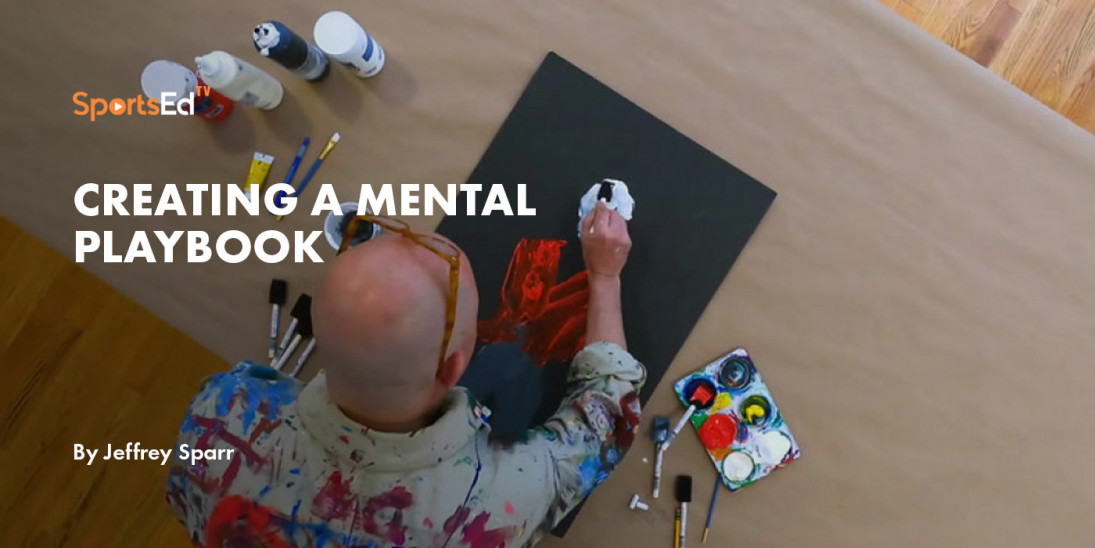Mental Health
Welcome and thanks for visiting...

How to Nurture a Winning Attitude in Your Players

Everyone loves to win. There’s no doubt about that. However, the attitude that it takes to produce a winning performance can be different from person to person. As a coach, I’m sure you’ve scratched your head at times when you’ve coached talented players who seem to sabotage their own capabilities and fail to cross the finish line first. Recognizing each person’s mental winning “hot button” and then knowing how and when to turn it on will help you coach more winners.
The dimension that impacts winning is a player’s personal mindset. This can be broken down into three familiar categories:
- The Optimist – I’m the best
- The Pessimist – I’m the worst but I could be better
- The Realist – I’m OK and so are you
This is something that you will not change because it is linked to how a person is hard-wired to feel good about themselves as a human being. It is also difficult to predict in an athlete because it is directly related to the mental messages that are going on in between the ears and is invisible to others.
See if you can put some faces of your players to these descriptions:
The Optimist: Fundamentally this person has internal messaging that says, “I’m great.” This positive sense of self stays stable even if they are losing. One of the ways they maintain this upbeat outlook is by carefully calculating personal risk before committing. And if they aren’t winning, they look at external causes for failure. The weather was bad; I wasn’t given enough time in the gym; my opponent had the advantage from the beginning. Even though they can be self-critical, it is done privately, and their goal is to find ways to shine.

To effectively coach the Optimist, any critique of their performance needs to start with what’s right. Position feedback as a way to help them be more successful. Grow their skills incrementally rather than putting them in risky situations where they may be in over their heads. Listen carefully to what they say their comfort zone is and allow them to move to new stages when they feel they have mastered where they are. Find ways to help them shine. If a failure occurs, don’t blame them. Blame external causes. They will know where they messed up, they just don’t want a public spotlight on it.
The Pessimist: The person leads with their flaws. If they are experiencing losses, it’s always their fault. They didn’t train enough; They weren’t in the right state of mind; They should have…; The pessimist is great a picking apart their past performance and will often be unrealistic about what they can achieve. They are known for setting the bar for themselves much higher than anyone else would set it for them. But, they are not thrown off by failure. It just makes them want to try harder. When they do fail, don’t try to sugar coat what they did wrong. Point it out and indicate you know they will do better the next time.

To effectively coach the Pessimist, help them examine what they see as their shortcomings and build pathways to overcome them. While some of the self-critiquing may seem petty to you, don’t dismiss it. If you do, they will turn their criticism on you. Set the bar high for this player even if you know they won’t make it. Getting close is good for them. With each performance, focus on how the next could be even better. When they do fail, don’t try to sugar coat what they did wrong. Point it out and indicate you know they will do better the next time. When they win, they will still point out how they could have done better so just embrace what may seem negative. To them, it’s the process of continuously improving their performance that makes them feel successful, not the achievement of the goal.
The Realist: Players with this mindset are very even-keeled in their demeanor. They are in touch with their strengths but are equally aware of their personal shortcomings. Often this steady state is missing passion. Even in their greatest triumphs, they could appear nonchalant and somewhat deaf to any praise or adulation for a great performance. They are able to step back and objectively assess their accomplishments and recognize what went right and what went wrong. Doing their best, given the circumstances, is what they focus on.

To effectively coach the Realist, balance your critical feedback with praise. There will always be positive and negative aspects to their performance so make sure you emphasize both. This person will be realistic about their potential and how much more they can accomplish. You may not move them out of this perspective and could lose credibility if you are overly enthusiastic or critical about their abilities. Their ego is not a factor in the choices they make. Instead, it is a realistic assessment of the pros and cons of their options so help them sort through those.
There is no one way to nurture a winning attitude in the players you coach. Understanding each person’s mindset which drives their sense of self is critical in knowing the best approach to winning.




